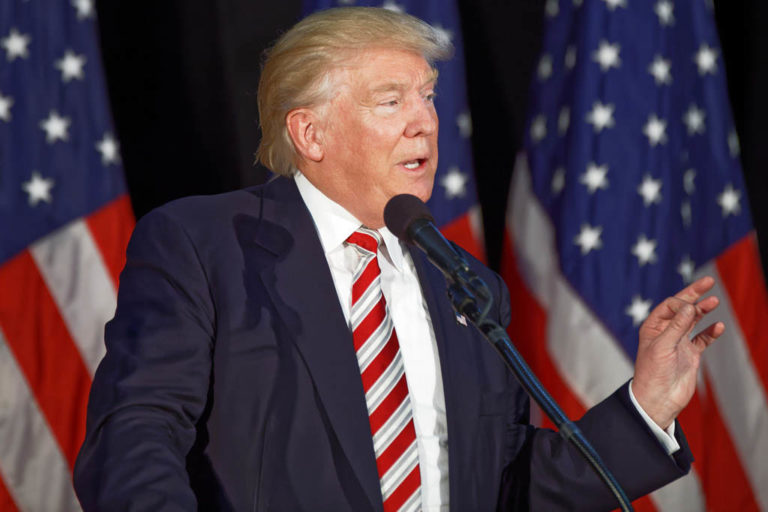By Elijah Lutz, Copy Editor
Those who know me, either just in passing or for a long time, know that my affinity for politics is strong. The excitement and joy I feel on Election Day during presidential election years is comparable to the excitement I once felt on Christmas morning, running downstairs to open my presents from Santa Claus.
Nothing could change that feeling, not even the countless politically apathetic persons warning me of apparent impending doom — until my candidate was losing.
After the Collegian’s election night broadcast was finished, I was finally able to see what nobody expected: Donald Trump was winning. He was ahead of Clinton by a fairly small margin of electoral votes, and I was desperate for any chance that she, whom I had supported, could bounce back and win the election. By 3 a.m, she had not bounced back. She had lost, and President-elect Donald Trump was taking the stage. All of a sudden, I was afraid.
The President-elect has consistently delivered a message that resonates deep within the working-class American majority: things in this country are not fine, and something needs to be done to fix that. Average Americans fear our nation is falling from its former glory, acting lately more as a stagnant ascendancy, rather than a world-leading superpower that the world either respects or fears. This is joined by jobs leaving the country, the threat of terrorism rising once more and the economy not recovering at speeds that are desirable. The American people do not want to see our fallen empire become just another polity on the global stage.
[perfectpullquote align=”right” cite=”” link=”” color=”” class=”” size=””]Average Americans fear our nation is falling from its former glory, acting lately more as a stagnant ascendancy, rather than a world-leading superpower that the world either respects or fears. [/perfectpullquote]
As the Atlantic put it, “Trump is a master of fear, invoking it in concrete and abstract ways, summoning and validating it. More than most politicians, he grasps and channels the fear coursing through the electorate.”
And to those who voted for him, the President-elect is more than just the usual fodder of politicians. He is an outsider, someone who is un-corrupted by Washington and could truly steer us on a path toward prosperity. After all, it was he who ran on the slogan of “Make America Great Again!”
All that said, there are many Americans who do not share that view. Many of them are rallying on the streets of major U.S. cities, protesting the man who will be inaugurated in two months. They, too, are afraid. They fear the consequences of a Trump presidency. Women, persons of color, the LGBT community, immigrants and even opponents to the Electoral College are joining in these protests. Fear has now overtaken them and sparked the drive to exercise their rights by protesting what they see to be an injustice.
Fear has been used by pundits to bash the President-elect throughout his campaign, saying he has been using fear to garner support, and he has. Likewise, those who supported Clinton were filled with fear at her loss, and they resorted to protests to deal with that fear. Fear is a major factor in American politics; it stirs up emotions in voters, gets them so full of emotions that they feel inspired to actually go and vote, or go and protest, or take some kind of civic action. We, as a country, have let our political actions be decided more based on fear, rather than by hope or thought. Why does it take being afraid to get Americans to be active? Why must we disengage ourselves from the process until we are filled with insecurity, waiting until the last minute to be a part of the rule by the people?
If we did not wait on fear, we might not be in such a state of insanity. Maybe if we didn’t rely so heavily on fear, we would see progress. Actions in Washington would be more collaborative efforts, rather than stalemates and filibusters to push more fear for what the other side could do if they are successful. Now, more than ever, it is a time to start to cast all that aside. Democrats need to stop being afraid of Republicans, and Republicans need to stop being afraid of Democrats. Politicians need to focus on hope, progress and what makes the nation great already, rather always focusing on what is wrong all the time. Fear leads to surprise and chaos. So instead, let us share hope. And I hope this election will not lead to more fear and chaos.




